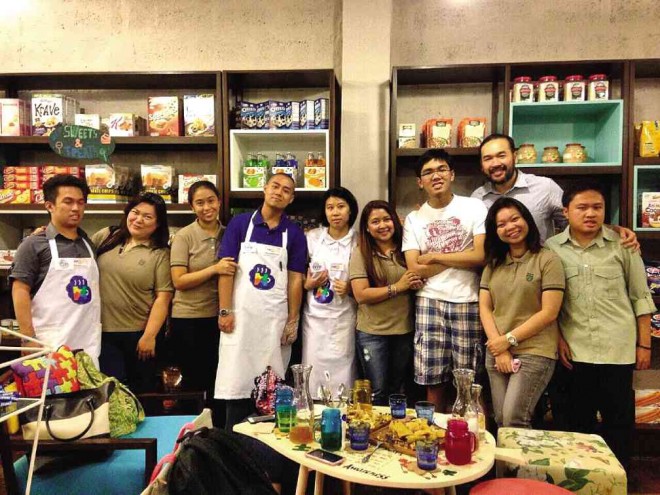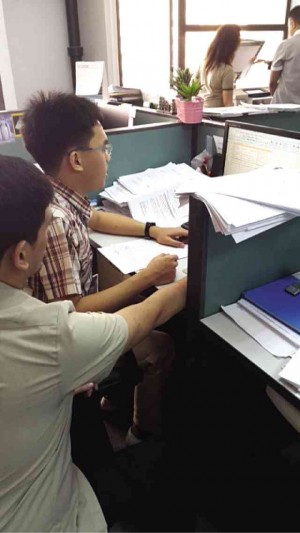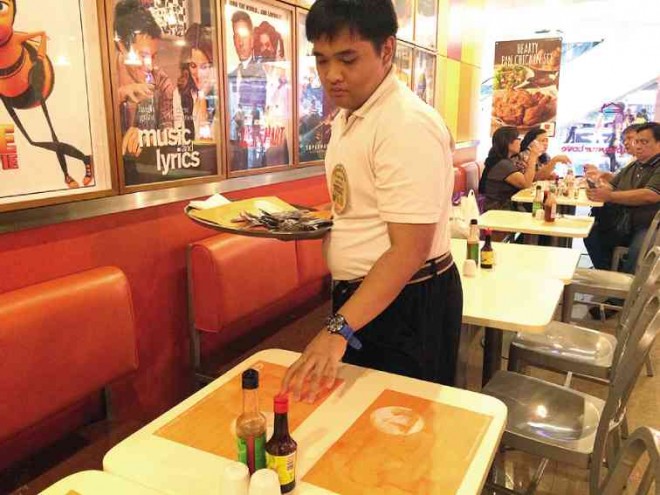Job readiness program ideal for PWDs
“Will my daughter survive college [and be able] to get a job?”
“How can my son support himself when I’m gone?”
Questions like these keep many parents of persons with autism, cerebral palsy, Down Syndrome and other learning or physical disabilities awake at night.
For many families of special people, finding jobs, much more careers, for their sons and daughters has remained an elusive goal.
There is no denying that hiring persons with disabilities (PWDs) is different from hiring ordinary employees.
Several hurdles have to be overcome so that both the PWD employee and the employer reap the full benefits of their professional relationship.
In a study funded by the United States Department of Education, professor Mark Lengnick-Hall of the University of Texas in San Antonio and his colleagues reviewed findings of previous researches that investigated the possible issues in having PWD employees.
Issues associated with PWDs as employees included their lack of the necessary knowledge, skills, or abilities for the jobs.
Employers, on the other hand, thought PWDs would be less productive and entail higher labor costs, including legal fees associated with employing differently abled workers.
Some feared the reactions of other workers and customers to PWD employees. Other employers simply were biased against PWDs for no clear reason.
Some of the fears are justified. Nine-year-old Tony, for instance, would throw a fit every time he experienced difficulties. If he were to grow up this way, he might just confirm employers’ fears.
Individualized training
But the lack of qualification of PWDs may be addressed through job readiness programs that offer individualized training tailor-fit to suit someone like Tony.
The programs aim to develop work behaviors and skills necessary for vocational pursuits.
In Tony’s prevocational skills class, he started with easy projects that had a good chance of success. He was gradually exposed to difficult tasks to raise his frustration tolerance.
Tony was taught more socially acceptable ways of expressing his frustration and to ask for help.
Schools that offer such programs have to be more than technically versed in work rehabilitation and special education. They have to maintain and expand corporate networks to provide diverse on-the-job training and suitable work placements for students.
Independent Living Learning Center (ILLC) in Mandaluyong City, which is accredited by the Department of Education, is recognized as a leader in the transition and work training of youth with special needs.
ILLC has partnered with several establishments to create venues where students may apply what they learn in school in actual but controlled work environments.
The school balances the need to provide students training opportunities with the operational and business interests of the establishments and organizations involved.
ILLC’s partners include Academia Progresiva de Manila (APDM), a preschool and
elementary school for typically developing children; Puzzles Café, an autism advocacy restaurant owned by the Canoy family; Pancake House and the Philippine Charity Sweepstakes Office, through general manager Jose Ferdinand M. Rojas II.
The partnerships are beginning to bear fruit. Katryn, 22, who has global delay, is being trained as a teacher aide at APDM. She helps arrange school furniture and distribute art materials and snacks to students.
Despite limited speech skills, she is effective in reminding preschool pupils to remain seated and listen to the teacher and not to run along hallways.
Oscar, 31, who has Down Syndrome, is a greeter at Puzzles Café because of his bright smile and pleasant personality.
He trains at the café with four ILLC students with autism who serve as waiters, bar attendants and kitchen hands.
The café’s staff has been oriented by the owners and by ILLC teachers on how to be effective trainers for Oscar and his peers.
Incentives for companies
Ramil, 20, who has autism, is doing on-the-job training at the PCSO. He is very proficient in encoding and filing documents.
Job readiness programs are not the only way to increase the chances of employment of PWDs. Providing incentives to companies will encourage them to hire more PWDs.
The Philippines may also consider a business model started by a Danish company, Specialisterne, which describes itself as “a socially innovative company where the majority of employees have a diagnosis on the autism spectrum … harness[ing] the special characteristics and talents of people with autism and us[ing] them as a competitive advantage, and as a means to help people with autism secure meaningful employment.”
The company made it possible recently for the software corporation Microsoft to hire more people with autism.
But “special” employees should not be hired out of pity or to make a company look good. They should be hired because they are able and willing to work.
Initially it may cost more, but if the best match between a PWD and job description is made, employers will get some of the most loyal and hardworking employees they are ever likely to find.
Visit www.illcphilippines.com or call 531-1551, 655-7275.


